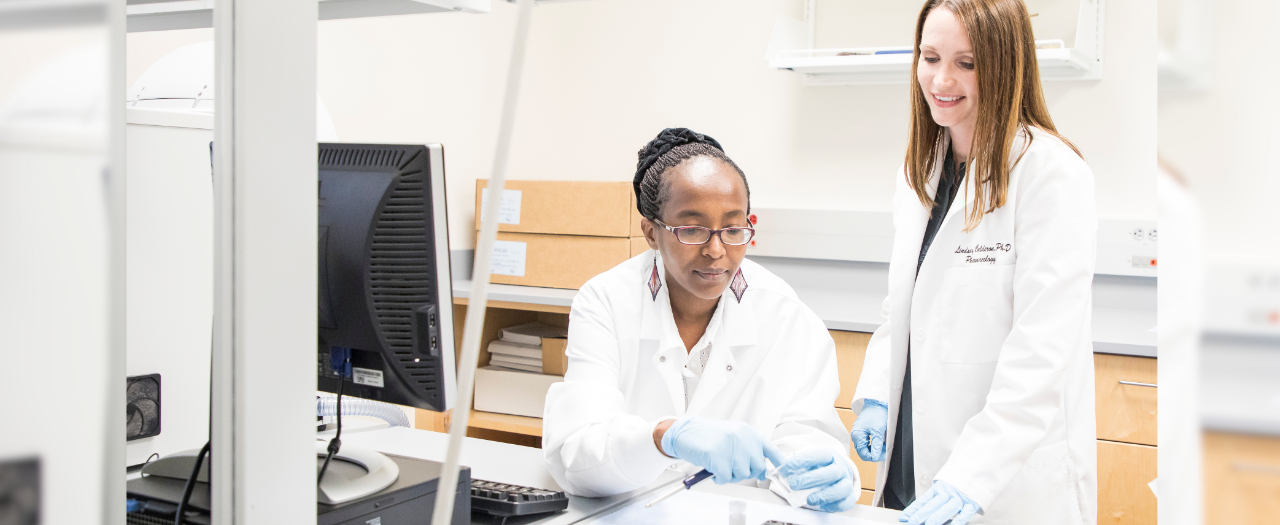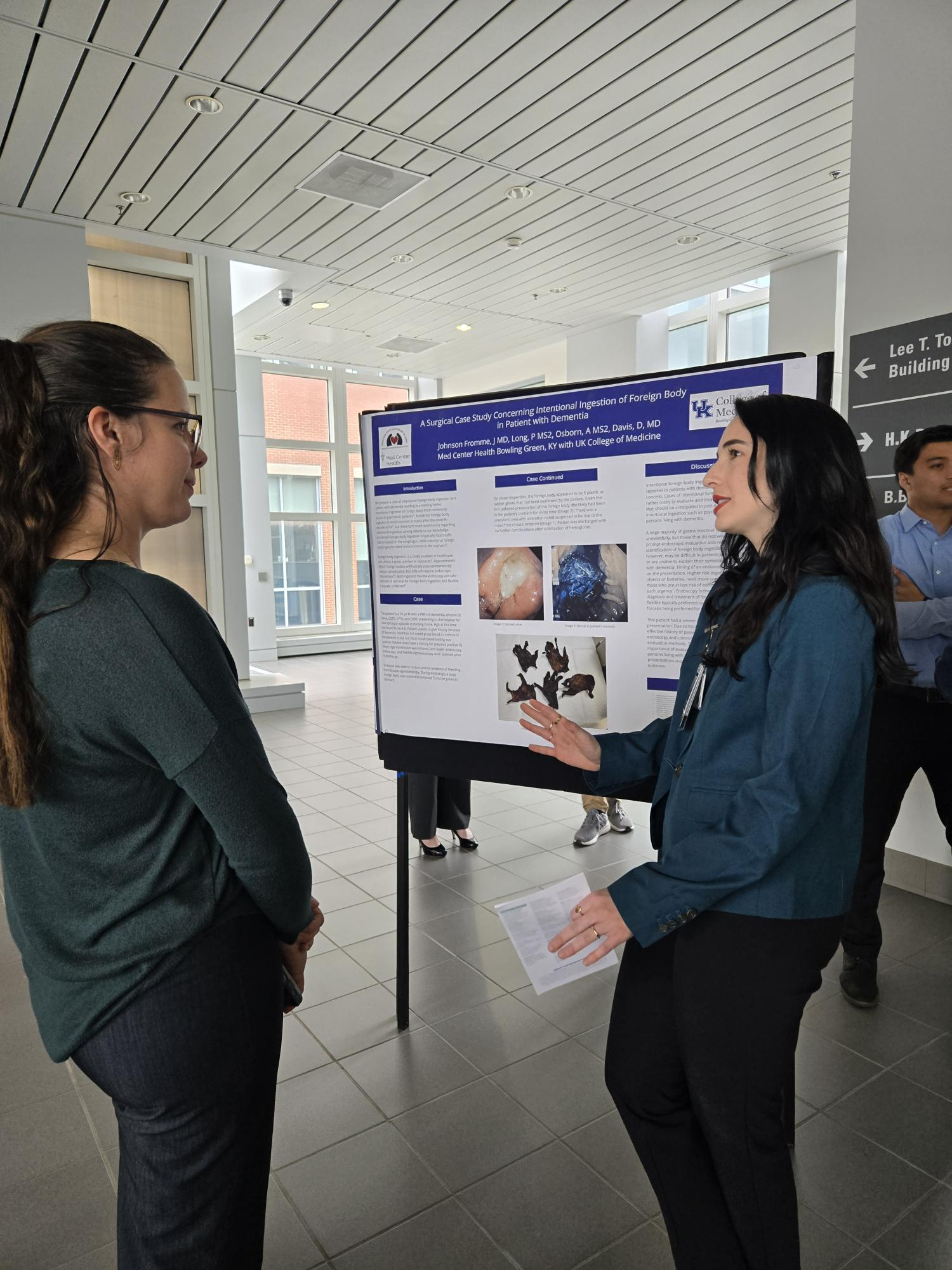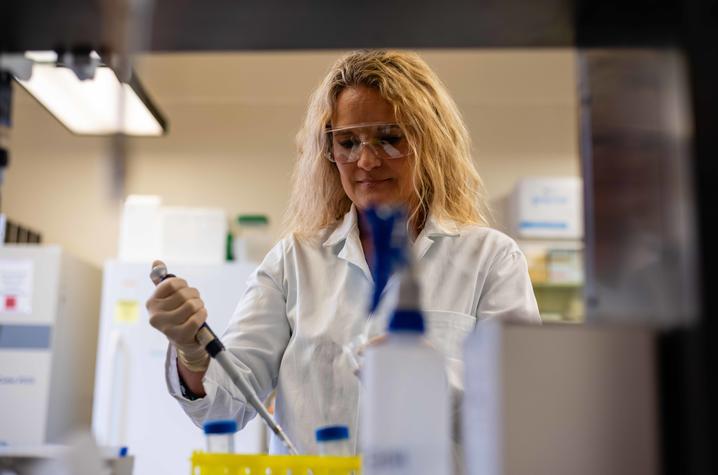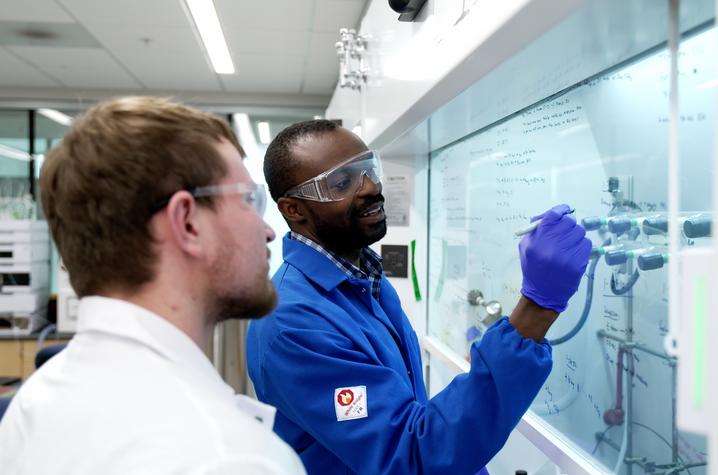News

Margaret Ndinguri, PhD, professor of chemistry at Eastern Kentucky University (EKU), and Lindsay Cormier, PhD, MPH, associate professor of pharmacology and nutritional sciences, recently received a continuation patent for their cancer research.

University of Kentucky Markey Cancer Center researchers will present their latest scientific advancements at the American Association for Cancer Research (AACR) Annual Meeting in Chicago April 27-30.

Hearing loss impacts millions of people worldwide and can occur at any age. More than just a medical condition, hearing loss impacts communication, connection and overall quality of life.
As awareness grows, so does the urgency to advance solutions that restore not just hearing — but engagement, confidence and independence.

The UK College of Medicine Office of Research is advancing its FORWARRD initiative—Facilitating Opportunities for Research Workforce Advancement to Retain and Recruit Dynamic Teams—to enhance research workforce opportunities across the College of Medicine, Markey Cancer Center, and Center for Clinical and Translational Science (CCTS).

A team of University of Kentucky Markey Cancer Center researchers have found the mechanism that grants prostate cancer resistance to enzalutamide, a frequently used drug.

Darlingtina K. Esiaka, PhD, an assistant professor in the Department of Behavioral Science in the University of Kentucky College of Medicine, has been awarded a fellowship by the Carnegie African Diaspora Fellowship Program (CADFP) to travel to Nigeria to work with the Research Center for Ageing Cognition and Psychological Health at Nnamdi Azikiwe University.

University of Kentucky Markey Cancer Centerresearchers presented promising results from an early-stage clinical trial investigating a unique coffee-based approach to ovarian cancer maintenance therapy at the Society of Gynecologic Oncology annual meeting in Seattle.

On Tuesday, March 26, the University of Kentucky College of Medicine hosted the 19th annual Alpha Omega Alpha (AOA) Groves Memorial Student Research Symposium.

Scientists have long recognized the brain’s need for energy, but groundbreaking research from the University of Kentucky’s Sanders-Brown Center on Aging has now illuminated how the brain’s energy utilization significantly influences our sleep patterns.

The University of Kentucky Markey Cancer Center, recently designated as a Comprehensive Cancer Center by the National Cancer Institute, is leading the way in bringing the latest cancer treatments to patients through clinical trials.

The University of Kentucky’s Julie Pendergast, PhD, and a team of researchers are exploring how disruptions to our body’s natural circadian rhythms and sleep impact health.

Groundbreaking research from the University of Kentucky has earned a spot on the cover of the prestigious Journal of Neuroscience, highlighting a major challenge in spinal cord injury recovery.

As the world faces evolving health challenges, international collaboration and public engagement are more critical than ever. In January, Rebecca Dutch, PhD, vice dean for research at the University of Kentucky College of Medicine, joined more than 120 global thought leaders at the 14th annual Congreso Futuro in Chile.

An innovative approach to delivering essential health resources to rural Kentuckians has demonstrated the potential of using drone technology to overcome geographical barriers to improve health care access.

University of Kentucky Markey Cancer Centerphysician-scientists Zhonglin Hao, MD, PhD, and Eddy Yang, MD, PhD, are leading the way in translating lab discoveries into clinical trials that are improving patient care.

University of Kentucky researchers have developed a new class of gold-based compounds that show promise in fighting various types of cancer.
When Austin Wellette-Hunsucker left his home state of Michigan to earn his PhD at the University of Kentucky College of Medicine, his family was incredibly supportive. They continue to be his most vocal cheerleaders.

The University of Kentucky’s Students Participating as Ambassadors for Research in Kentucky (SPARK) Program has named its 2025 cohort.

Three University of Kentucky College of Medicine students have been chosen for the Health Disparities Research Training (HDRT) Fellowship.
The Department of Behavioral Science created the fellowship, which is supported by its Council on Community, Engagement, Research and Training (CONCERT).

The University of Kentucky Building Interdisciplinary Research Careers in Women’s Health (BIRCWH) program is celebrating 25 years of community building among early-career researchers.